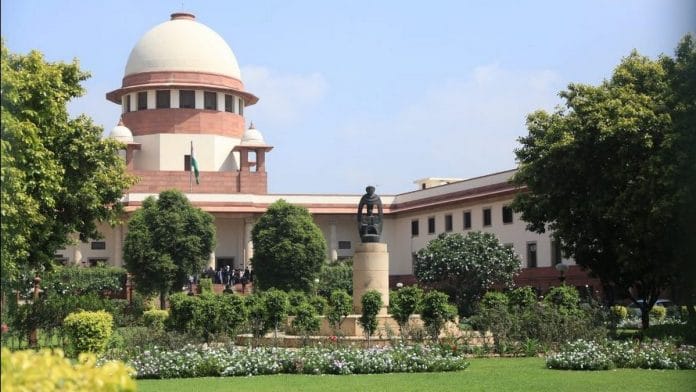New Delhi: The Supreme Court Monday agreed to examine validity of the Centre’s decision to amend an IBC provision which introduced a threshold of at least 10 per cent of homebuyers in a project or 100 of the total allottees for initiating corporate Insolvency Resolution Process (IRP) against the realtor.
A batch of petitions challenging a provision of the Insolvency and Bankruptcy Code (Amendment) Ordinance 2019, which was promulgated on December 28 last year, came up for hearing before a bench comprising Justices R F Nariman and S Ravindra Bhat.
The bench issued notice to the Centre seeking its response on the pleas.
The Ordinance had introduced a minimum threshold of at least 100 allottees of the same real estate project or 10 per cent of total allottees under that project, whichever is less, for moving a joint plea seeking initiation of corporate IRP against the realtor.
The petitioners, most of whom are homebuyers, have challenged section 3 of the Ordinance claiming it has rendered the buyers, who are financial creditors, remediless and they have been subjected to discrimination by putting a pre-condition in the form of minimum number of allottees of a particular project required for filing an application under section 7 of the IBC for initiation of the IRP.
They have claimed that the Ordinance is in violation of Articles 14 (equality before law) and 21 (protection of life and personal liberty) of the Constitution.
Manish Kumar, in his plea through advocate Akash Vajpai, sought to declare as unconstitutional section 3 of the Ordinance saying it intends to amend section 7 of the IBC and restrict right of an allottee to approach National Company Law Tribunal (NCLT) for initiation of IRP against a builder.
The petitioners have also challenged the retrospective application of the Ordinance with respect to the homebuyers’ plea before the tribunals.
The petitioners, who had already approached the NCLT under the IBC, said that after the new changes, their cases would be adversely affected and there is a likelihood that their cases would be withdrawn.
One of the pleas said that financial creditors already form a ‘class’ within creditors under the IBC and debt owed to them forms a ‘class’ under the Code.
“It is also submitted that the Code is a beneficial piece of Legislation… The Ordinance dissects financial creditor further and imposes a condition on that newly created class. This condition hinders them from reaping the benefits available to others under the Code. This amounts to creation of a ‘class within a class’ and is unconstitutional and manifestly arbitrary, violating Article 14 of the Constitution,” one of the pleas said.
Also read: What are the next 5 steps Modi govt needs to take after corporate tax cut?






